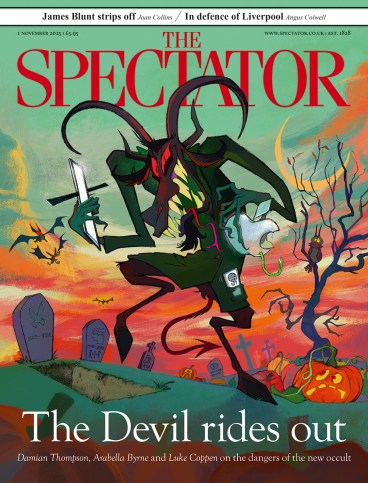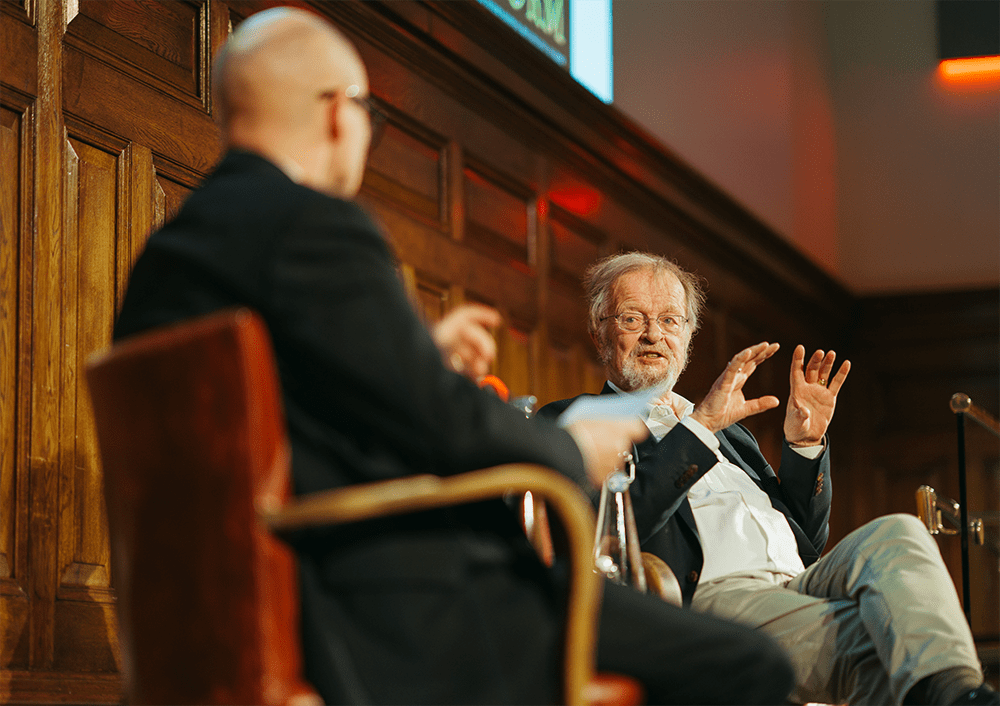
They say never meet your heroes, but Bernard Cornwell didn’t disappoint. Knowing I’m a superfan, the events team at The Spectator asked me to interview him on stage on Monday and he was everything you could hope for: funny, candid, clever. The default register of very successful people in my experience is insincere modesty, but Cornwell was something different – falsely immodest. That is to say, there were moments when he blew his own trumpet, but in a way clearly intended to be ironic. The lasting impression was of someone completely at ease with his achievements – not puffed up, but justifiably proud.
Few authors can match Cornwell’s accomplishments. He was in London to promote Sharpe’s Storm, the latest addition to his 25-volume series featuring Richard Sharpe, an English rifleman in the Napoleonic wars. Those novels alone have sold more than 20 million copies. Indeed, virtually the only country in which they haven’t become bestsellers is France – understandable, given that they depict an unbroken chain of French military defeats. On stage, Cornwell was very funny about the poor French publisher who’d taken on the task of trying to sell these novels.
But the Sharpe sequence accounts for less than half his output. There’s also the three-volume Warlord Chronicles set in Arthurian Britain, the four-volume Grail Quest about Thomas of Hookton’s search for the Holy Grail, the four-novel Starbuck series set during the American Civil War and the 13-volume Saxon Stories, dramatised on television as The Last Kingdom. Monday brought the exciting news that he’s started work on a 14th novel in that series – manna from heaven for fans of Uhtred of Bebbanburg. Save for the last, I’ve read all of these – and many of his other novels too, such as his superb one-off about the battle of Agincourt. He is, as the Boston Globe says, the greatest writer of historical fiction today.
‘Nurses don’t get up in the morning and think, “I won’t go to work today because I’ve got nurse’s block”’
One of the reasons for this prodigious output – he thought he’d published 63 novels, but couldn’t be sure – is that he writes quickly and produced two books a year for several decades. ‘I don’t believe in writer’s block,’ he said on Monday night. ‘Nurses don’t get up in the morning and think, “I won’t go to work today because I’ve got nurse’s block”. If they can go to work every day then so can I.’ Now that he’s reached the age of 81 he’s slowed down a bit, having spent a whole year on the most recent Sharpe novel, although that’s partly because of the challenges of writing the books in non-chronological order.
Like C.S. Forester, whom he cited as an inspiration, he made the mistake of ending his trademark saga too quickly – the original Sharpe sequence is just 11 volumes – so to keep the golden goose alive he’s had to shoehorn new stories in to the established timeline, just as Forester did with Hornblower. In the case of Sharpe’s Storm, he realised midway through he had a ‘two body problem’ – the historical battle he’d hoped to end the book with took place at exactly the same time as another battle that Sharpe was present at in an earlier book. Solving that problem by finding somewhere equally exciting for his protagonist to be at the novel’s climax meant rewriting large chunks.
This also explains some of the anomalies that people who’ve read the books in order have spotted – such as the fact that Sharpe has a daughter about midway through the series, who is then scarcely mentioned again. Happily, he said, readers are quick to write to him to point out these lapses: ‘I think if I’d ended the battle of Waterloo with a French victory, none of my readers would have batted an eyelid. But if I say that a particular regiment had brass buttons on their uniform, when in fact they were silver, I never hear the end of it.’
One thing that is clear is how much affection Cornwell has for his readers, many of whom were in the audience on Monday night to express their appreciation. Not only does he reply to their letters, but he’s been responding to queries on his website since 2004 and his answers run to 1,313 pages. One eager young fan had brought a large suitcase containing first editions of the 25 Sharpe books, and the author had kindly agreed to sign them all. After the crowds had melted away, a nice young woman approached me with a dog-eared copy of How to Lose Friends and Alienate People and asked for my signature. I think this is what’s known in the trade as a pity signing – not my first. I was grateful, but not as grateful as I am to Bernard Cornwell. He has given me more pleasure than any other living author and meeting him in the flesh was a real delight.








Comments